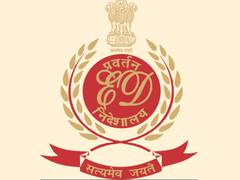Punjab: Bathinda AQI recorded ‘poor’ category after stubble burning
Bathinda (Punjab) [India], November 2 (ANI): After stubble burning in Bathinda, the air quality index (AQI) of the city recorded the ‘poor’ category on Thursday morning.
The local administration has appealed to the farmers to stop stubble burning.
“The smoke of stubble spread in Bathinda, the air became poisonous, and the administration appealed to the distressed farmers not to burn the stubble.” Lucky, a local resident said.
“Today, a blanket of smoke from stubble was seen in the sky of Bathinda. The pollution increases so much in the morning that even walking becomes difficult. The local administration appealed to the Punjab government to stop burning stubble. Farmers also want to tell their brothers not to burn the stubble because this smoke will cause huge loss to everyone.”
On Tuesday a Three-judge bench of the Supreme court headed by justice SK Kaul, directed the state governments to file affidavits stating steps taken by them to control air pollution.
The court directed the governments of Delhi, Punjab, Haryana, Uttar Pradesh and Rajasthan to file the affidavit within a week.
Earlier the Punjab government had listed out the steps that the state government has taken to improve air quality.
“Timely distribution of machines, utilisation of machines lying idle, efforts to ensure maximum utilisation of stubble in various industries, various deterrence efforts, campaigns to promote various in-situ and ex-situ methods and appeals to farmers have shown significant efforts and ensured improved air quality for everyone,” the government said in a statement.
Meanwhile, The Air Quality Index (AQI) in the national capital was recorded at 336 on Wednesday morning bringing the air quality under the ‘very poor’ category for the fourth day in a row and the third straight day this week.
As per the SAFAR-India, the city’s AQI has been in the ‘very poor’ category since Sunday (309).
The AQI was recorded at 322 on Monday and 327 on Tuesday, as per the data provided by the System of Air Quality and Weather Forecasting and Research (SAFAR)-India.






